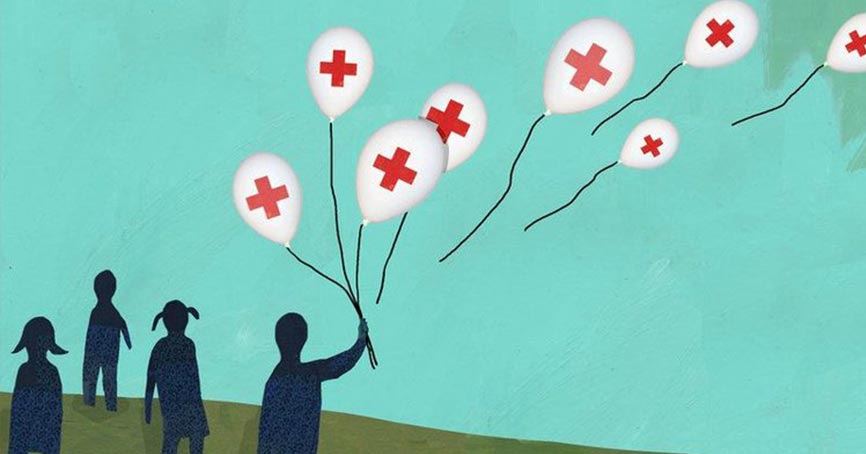If there are frequent changes in a child's behavior resulting in intense mood swings, then the child might be suffering from Bipolar Disorder. Bipolar disorder in children is often confused with growth and hormonal changes. However, it is a lot more serious matter of concern. Let's find out more about bipolar disorder symptoms, its causes, and treatments.
What Is Bipolar Disorder?
Bipolar disorder is a mental condition in which people experience severe mood swings that result in episodes of mania and depression. As per a
statistical report, bipolar disorder is the 6th leading cause of disablement in the world.
Bipolar disorder in children may lead to behavior changes that are extreme and different from their typical mood and behavior. Kids with bipolar disorder are at a higher risk for attention-deficit hyperactivity disorder (ADHD) and anxiety disorders.
These similar disorders can complicate the identification of bipolar disorder and contribute to the lack of susceptibility to the illness in children. Hence, it is advisable to consult a doctor as soon as possible.
What Causes Bipolar Disorder in Children?
According to
WHO,
worldwide every 10-20% of children are suffering from mental disorders. While there is no specific cause of this condition, there are several factors that can cause bipolar disorder. For instance:
- genetics - it is very common in kids who have a parent or immediate sibling suffering from the same condition.
- biological differences - it may also cause due to dysfunction of certain chemical messengers or neurotransmitters, in the brain.
Bipolar Disorder Symptoms and Warning Signs
Bipolar disorder in children develops from the early age but may reflect in adolescence or adulthood. As per
statistics, 'In India alone, there 12 - 15 million people who are bipolar.' Here are the common signs and symptoms of this condition.
- Stubborn behavior
- Rages & extreme temper tantrums
- Recurrent mood swings
- Separation anxiety
- Distractibility, hyperactivity, impulsivity
- Marked irritability
- High energy level than normal
- Involvement in several activities at once
- Irregular sleep or insomnia
- Restlessness, fidgetiness
- Silliness, goofiness, giddiness
- Racing thoughts
- Pretentiousness
- Low self-esteem
- Risk-taking behavior
- Depressed mood
- Thoughts of suicide or death
- Lethargy
- Night terrors
- Difficulty getting up in the morning
- Fast or pressured speech
What Could Bipolar Disorder in Children Lead To?
Older children with bipolar disorder can also have co-existing problems at the same time. These include:
- attention-deficit/hyperactivity disorder (ADHD) - children with both bipolar disorder and ADHD may have trouble staying focused.
- substance abuse - Both kids and older children are at risk of drinking or taking drugs.
- anxiety disorders, like parting anxiety.
What Are the Possible Treatments for This Condition?
Treatment for bipolar disorder can be categorized into three types, namely:
- acute treatment - this type of treatment helps in dealing with current symptoms and goes on until remission.
- continuation treatment - this type of treatment focuses on keeping the symptoms milder than the previous depressive or manic episode.
- maintenance treatment - this type of treatment helps in avoiding a recurrence of symptoms and relapsing in the condition.
Apart from this, medications like mood stabilizers, psychotherapy, self-help strategies, and support group programs can also help.
How Can Parents Help?
It is a challenge for parents to deal with a child's bipolar disorder symptoms. Sometimes the situation may become overwhelming. In that case, the first and the foremost things to do are be patient and accepting. Following that, given below are other ways in which parents can help their children.
- Make sure the child never skip medicines.
- It is important to realize irregular sleep patterns may instigate a manic or depressive episode. Therefore, set a healthy routine for them.
- Take them to therapy from time to time as it helps in stabilizing the mood.
- Keep them in a friendly environment. Overstimulation can be traumatic and may trigger problems, but so can isolation. Try to strike a balance in their social life.
- Always be cautious with the triggers of this condition. Social isolation, stress, irregular sleep, and inconsistent routine can trigger episodes of depression or mania. Therefore, be there for the child when they are about to experience any change like going to a new school, meeting other kids, etc.
- Build a support web for them. While others might not know about a kid's condition, feel free to share with them. It makes people understand the problem. As a result, if any episode of maniac or depression happens in front of them, they might help too.
- Do not give up. Oftentimes parents become agitated and angry. Try avoiding and expressing that in front of the child. It may affect them adversely.
How Is Lifestyle Affected by This Condition?
A child may experience a lack of a regular routine and disturbed sleep. As a result, it can trigger a mood episode. Therefore, choosing leisure and work activities that allow good sleep and rest is imperative for the children. It will help in calming down bipolar disorder symptoms and will lead to healthy emotional functioning.
Parents can also support proper mental hygiene by going to bed and waking up at the same time each day. If parents are still not sure where to get help, consult a doctor or child psychiatrist.

 Jun 04, 2019
Jun 04, 2019
 May 30, 2018
May 30, 2018 May 10, 2018
May 10, 2018 May 17, 2018
May 17, 2018